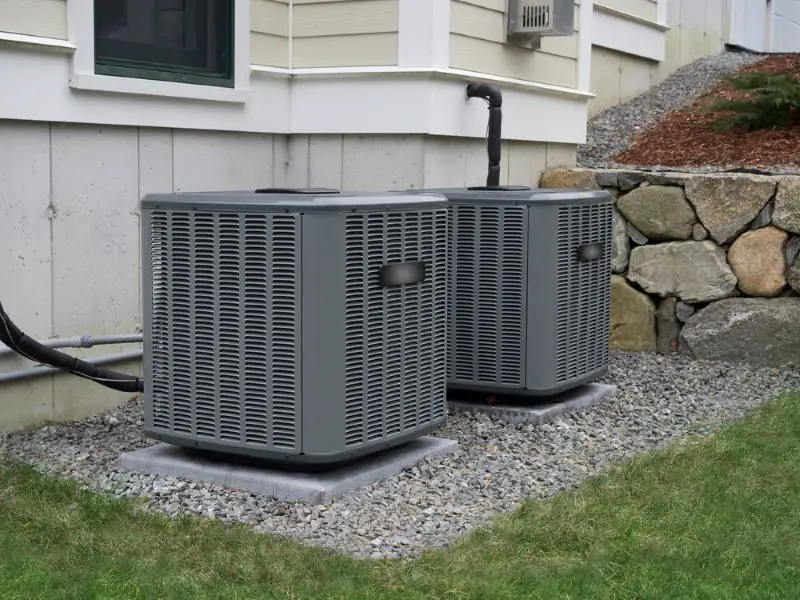Click here to get this post in PDF
In today’s digital age, technology has revolutionized almost every aspect of our lives, including how we cool and heat our homes and businesses. Modern HVAC systems are no longer just about maintaining a comfortable temperature; they are sophisticated, interconnected systems that leverage cutting-edge technology to provide precise control, energy efficiency, and improved indoor air quality. In this blog post, we’ll explore the pivotal role of technology in shaping modern HVAC systems and how it contributes to cooling comfort in the digital age.
The Path to Mastery: HVAC Systems
The journey towards mastering HVAC systems begins with a deep understanding of the underlying principles of heating, ventilation, and air conditioning. HVAC technicians undergo extensive training and education to become proficient in installing, repairing, and maintaining these complex systems. They learn about thermodynamics, fluid mechanics, and electrical engineering, among other disciplines, to effectively troubleshoot issues and optimize system performance.
According to www.kyzarairconditioning.com , as technology continues to evolve, HVAC professionals must stay abreast of the latest advancements and innovations in the field. From smart thermostats and zoning systems to variable-speed compressors and energy-efficient heat pumps, the modern HVAC landscape is constantly evolving. By mastering new technologies and techniques, HVAC technicians can deliver superior service and ensure that their clients enjoy optimal comfort and energy savings.
HVAC Energy Savings Strategies
One of the most significant benefits of modern HVAC technology is its ability to deliver energy savings without sacrificing comfort. Energy-efficient HVAC systems leverage advanced features such as variable-speed motors, programmable thermostats, and intelligent controls to optimize energy usage and reduce utility bills. By adjusting output levels based on real-time conditions and occupancy patterns, these systems can minimize energy waste and operate more efficiently.
Additionally, advancements in insulation, duct design, and building automation further contribute to energy savings in HVAC systems. Proper insulation and sealing help prevent heat loss and air leakage, ensuring that conditioned air remains inside the building where it’s needed most. Meanwhile, building automation systems enable centralized control and scheduling of HVAC equipment, allowing for precise temperature management and energy optimization.
Choosing the Right HVAC Contractor
When it comes to installing, repairing, or upgrading HVAC systems, choosing the right contractor is essential. A reputable HVAC contractor will have the knowledge, experience, and expertise to recommend the best solutions for your specific needs and budget. They will take the time to assess your property, perform load calculations, and discuss your comfort goals to tailor a solution that meets your requirements.
In addition to technical expertise, it’s crucial to consider factors such as licensing, insurance, and warranties when selecting an HVAC contractor. Licensed contractors are held to higher standards of professionalism and accountability, ensuring that they adhere to industry best practices and local building codes. Likewise, contractors who offer comprehensive warranties provide added peace of mind and assurance that their work is of the highest quality.
Improving Indoor Air Quality
Beyond temperature control, modern HVAC systems also play a critical role in improving indoor air quality. Advanced filtration systems, UV germicidal lights, and ventilation solutions help remove contaminants such as dust, pollen, and mold spores from the air, creating a healthier and more comfortable indoor environment. These technologies can be particularly beneficial for individuals with allergies, asthma, or other respiratory conditions.
In addition to filtration and purification, humidity control is another key aspect of indoor air quality management. High humidity levels can promote mold growth and exacerbate respiratory issues, while low humidity can cause discomfort and respiratory irritation. Modern HVAC systems offer precise humidity control capabilities, allowing for optimal moisture levels to be maintained year-round.
The Role of Renewable Energy in HVAC Systems
While technological advancements have greatly improved the efficiency and comfort of HVAC systems, the quest for sustainability has led to an exploration of alternative energy sources. Renewable energy, in particular, has emerged as a promising solution for reducing carbon emissions and promoting environmental stewardship. In this section, we’ll explore the role of renewable energy in HVAC systems and how it’s reshaping the way we think about heating and cooling.
Harnessing the Power of the Sun: Solar Energy Integration
Solar energy, abundant and inexhaustible, has long been hailed as a game-changer in the quest for sustainable energy solutions. In the realm of HVAC, solar energy is increasingly being harnessed to power heating, cooling, and ventilation systems. Solar panels, installed on rooftops or adjacent to buildings, capture sunlight and convert it into electricity through photovoltaic cells. This clean, renewable energy can then be used to power HVAC equipment, reducing reliance on grid electricity and lowering utility bills.
Conclusion
In conclusion, technology plays a pivotal role in shaping modern HVAC systems and enhancing cooling comfort in the digital age. From energy-efficient features to advanced indoor air quality solutions, today’s HVAC systems offer unprecedented levels of comfort, efficiency, and control. By leveraging cutting-edge technology and expertise, HVAC professionals can create customized solutions that meet the unique needs of their clients while promoting energy savings and environmental sustainability. As we continue to embrace innovation and advancements in the HVAC industry, we can look forward to even greater levels of comfort and efficiency in the years to come.
The adoption of renewable energy in HVAC systems not only benefits individual homeowners and businesses but also contributes to broader environmental goals. By reducing greenhouse gas emissions and promoting energy independence, renewable HVAC solutions play a crucial role in mitigating climate change and preserving the planet for future generations. Furthermore, the integration of renewable energy creates new opportunities for innovation, job creation, and economic growth in the green energy sector. As we strive towards a cleaner, more sustainable energy future, renewable energy in HVAC systems will undoubtedly play a central role in achieving our collective environmental objectives.
You may also like:
What Do Air Conditioners Use Instead Of Freon?
Maximizing Your Hot Water: Unvented Cylinder Maintenance
How is renewable energy The Key to a Sustainable Future?
Image source: Depositphotos.com

